Are you ready to dive into the world of irresistible charm and boundless energy? Picture this: a fluffy cloud of white fur prancing around with endless joy and affection. Get ready to uncover the enchanting world of Bichon Frisés, where every wag of the tail is a promise of pure happiness!
Contents Overview
Breed Overview: Bichon Frisé
Size: The Bichon Frisé is a small dog breed, typically weighing between 10 to 18 pounds (4.5 to 8 kilograms). They stand at around 9.5 to 11.5 inches (24 to 29 centimeters) tall at the shoulder, making them perfect for cuddles and apartment living alike.
Appearance: This breed is known for its fluffy, curly coat, which resembles a cotton ball come to life. Their distinctive appearance is enhanced by their dark, expressive eyes and black nose. Bichon Frisés sport a double coat consisting of a soft undercoat and a curly, dense outer coat, which gives them their signature teddy bear-like appearance.
Life Span: Bichon Frisés typically live for 12 to 15 years, although with proper care and attention, some have been known to live even longer. With their enduring vitality and zest for life, these furry companions become cherished members of the family for many years to come.
History and Origins of Bichon Frisé
The Bichon Frisé may look like a creature from a fairy tale, but its history is firmly rooted in reality. Let’s embark on a journey through time to uncover the fascinating origins of this delightful breed.
- Mediterranean Roots:The Bichon Frisé is believed to have originated in the Mediterranean region, particularly in areas such as Italy, Spain, and France. Its ancestors include various small, white-coated Mediterranean breeds, such as the Bichon Tenerife, the Maltese, and the Bolognese.
- Royal Favor:During the Renaissance period, the Bichon Frisé found favor among European nobility, particularly in France. These charming little dogs became beloved companions to royalty and aristocrats, adorning the laps and chambers of kings and queens.
- Traveling Companions:As sailors and traders ventured across the seas during the Age of Exploration, they often brought Bichon Frisés along as shipboard companions. These spirited dogs proved to be excellent sailors, providing both companionship and entertainment during long voyages.
- Circus Stars:In the 19th century, Bichon Frisés found their way into circuses and traveling shows, where their intelligence and agility made them popular performers. They dazzled audiences with their tricks and antics, further cementing their place in the hearts of people around the world.
- Modern Renaissance:In the 20th century, the Bichon Frisé experienced a resurgence in popularity, thanks in part to their winsome personalities and photogenic appearance. Today, they continue to enchant dog lovers worldwide as beloved pets, therapy dogs, and show dogs, embodying the timeless charm and grace of their illustrious ancestors.
From royal palaces to humble homes, the Bichon Frisé has journeyed through history with grace and charm, leaving a trail of joy and affection in its wake.
Temperament and Personality of Bichon Frisé
The Bichon Frisé is more than just a pretty face—beneath that fluffy exterior lies a heart of gold and a personality that shines just as brightly. Let’s delve into the delightful traits that make this breed such a beloved companion.
- Affectionate and Sociable:Bichon Frisés are renowned for their affectionate nature and love of companionship. They thrive on human interaction and are happiest when they’re by your side, whether cuddled up on the couch or frolicking in the park.
- Playful and Energetic:Despite their small size, Bichon Frisés are brimming with energy and enthusiasm. They have a playful spirit that knows no bounds, and they’re always up for a game of fetch or a romp around the yard. Their boundless energy is infectious, making them the perfect partner for active families.
- Intelligent and Trainable:Don’t let their fluffy appearance fool you—Bichon Frisés are highly intelligent dogs with a knack for learning new tricks. They respond well to positive reinforcement training methods and thrive on mental stimulation. With patience and consistency, they can master a wide range of commands and behaviors.
- Cheerful and Outgoing:With their perpetually wagging tails and sunny dispositions, Bichon Frisés have a knack for spreading joy wherever they go. They approach life with a sense of optimism and enthusiasm that is impossible to resist, brightening even the gloomiest of days with their infectious charm.
- Gentle and Affable:Bichon Frisés have a gentle demeanor that endears them to people of all ages, from young children to seniors. They are known for their patience and tolerance, making them ideal family pets and therapy dogs. Their gentle nature also makes them well-suited to multi-pet households, where they often get along famously with other animals.
In summary, the Bichon Frisé is a bundle of joy wrapped in a fluffy coat, with a personality that’s as endearing as it is irresistible. Whether they’re showering you with affection or entertaining you with their playful antics, these delightful dogs are sure to steal your heart from the moment you meet them.
Exercise and Training Needs of Bichon Frisé
The Bichon Frisé may be small in size, but they have big personalities and energy levels to match. To ensure they lead happy, healthy lives, it’s essential to provide them with the right amount of exercise and training. Here’s what you need to know:
Exercise Requirements:
- Daily Walks: Despite their small stature, Bichon Frisés have moderate exercise needs and enjoy daily walks to help burn off excess energy and stimulate their minds.
- Playtime: Engage them in interactive play sessions, such as fetch or tug-of-war, to keep them mentally and physically stimulated.
- Indoor Activities: Bichon Frisés are adaptable and can thrive in apartment living as long as they receive regular indoor play sessions and short walks throughout the day.
Training Needs:
- Positive Reinforcement: Bichon Frisés respond best to positive reinforcement techniques, such as praise, treats, and play, so be sure to reward good behavior consistently.
- Basic Obedience: Start with basic obedience training, including commands such as sit, stay, come, and heel. Keep training sessions short and fun to hold their attention.
- Socialization: Introduce your Bichon Frisé to different people, animals, and environments from a young age to help them develop into well-rounded, confident dogs.
- Patience and Consistency: Bichon Frisés can be sensitive souls, so be patient and consistent in your training efforts. Avoid harsh methods or punishment, as this can undermine their trust and confidence.
- Regular Mental Stimulation: Keep their minds sharp and engaged with puzzle toys, obedience classes, or canine sports like agility or obedience trials.
Special Considerations:
- Potty Training: Due to their small bladders, Bichon Frisés may require extra diligence and patience when it comes to potty training. Establish a consistent routine and reward them for going to the bathroom outside.
- Separation Anxiety: Bichon Frisés are known for their strong bonds with their owners and may experience separation anxiety if left alone for long periods. Gradually acclimate them to alone time and provide plenty of mental stimulation and comfort in your absence.
- Grooming: Regular grooming is essential to keep their fluffy coats free from mats and tangles. Daily brushing, monthly baths, and periodic visits to a professional groomer are recommended to maintain their coat health and appearance.
Bichon Frisé’s Coat: Type and Length
The Bichon Frisé’s coat is one of its most distinctive features, adding to its charm and allure. Let’s explore the type and length of this delightful breed’s coat:
- Coat Type:
- The Bichon Frisé sports a double coat, consisting of a soft, dense undercoat and a curly, textured outer coat.
- Their coat is non-shedding and hypoallergenic, making them a popular choice for allergy sufferers.
- Coat Length:
- The coat of a Bichon Frisé is typically long and flowing, with curls that give it a buoyant, cotton-like appearance.
- While the coat length can vary slightly from dog to dog, it generally falls to the ground in elegant waves, giving the Bichon Frisé a regal and majestic appearance.
- Proper grooming and maintenance are essential to keep their coat in prime condition and prevent matting or tangling.
Grooming Tips:
- Daily brushing is recommended to prevent mats and tangles from forming in their dense coat.
- Regular baths with a mild dog shampoo help to keep their coat clean and free from dirt and debris.
- Professional grooming every 4 to 6 weeks can help maintain the Bichon Frisé’s signature fluffy appearance and ensure their coat remains healthy and manageable.
- Pay special attention to grooming around the ears, paws, and tail, as these areas are prone to matting and may require extra care.
Special Considerations:
- While the Bichon Frisé’s coat is beautiful, it does require ongoing maintenance to keep it looking its best. Be prepared to invest time and effort into grooming to ensure your furry friend’s coat remains healthy and tangle-free.
- Regular grooming sessions also provide an opportunity for bonding with your Bichon Frisé and help reinforce the strong bond between you and your pet.
Grooming and Care for Your Bichon Frisé
The Bichon Frisé’s fluffy coat requires regular grooming and care to keep it looking its best and to ensure the overall health and well-being of your furry friend. Here’s a comprehensive guide to grooming and caring for your Bichon Frisé:
- Brushing:
- Daily brushing is essential to prevent mats and tangles from forming in the Bichon Frisé’s dense coat.
- Use a slicker brush or a pin brush to gently remove any knots or debris from their fur, paying close attention to areas prone to matting, such as behind the ears and under the legs.
- Brushing also helps distribute natural oils throughout their coat, keeping it shiny and healthy.
- Bathing:
- Bathe your Bichon Frisé every 4 to 6 weeks using a mild dog shampoo specifically formulated for their coat type.
- Be sure to thoroughly rinse out all shampoo residue to prevent skin irritation.
- Avoid over-bathing, as this can strip their coat of natural oils and lead to dryness and irritation.
- Trimming:
- Regular trimming is necessary to maintain the Bichon Frisé’s signature fluffy appearance and to prevent their coat from becoming overgrown and unmanageable.
- Focus on trimming around the eyes, ears, paws, and sanitary areas to keep them clean and free from mats.
- Professional grooming every 4 to 6 weeks can help keep their coat looking its best and ensure that their nails are trimmed to a safe length.
- Ear Care:
- Check your Bichon Frisé’s ears regularly for signs of infection, such as redness, swelling, or discharge.
- Clean their ears gently with a veterinarian-approved ear cleaner to remove wax and debris, being careful not to insert anything into the ear canal.
- Proper ear care is essential to prevent ear infections, which are common in breeds with floppy ears like the Bichon Frisé.
- Dental Care:
- Brush your Bichon Frisé’s teeth regularly with a dog-specific toothbrush and toothpaste to prevent dental issues such as tartar buildup and gum disease.
- Provide dental chews or toys to help keep their teeth clean and healthy between brushings.
- Eye Care:
- Keep your Bichon Frisé’s eyes clean and free from discharge by wiping them gently with a damp cloth as needed.
- Watch for signs of eye irritation or infection, such as redness, swelling, or excessive tearing, and consult your veterinarian if you notice any abnormalities.
- Nutrition:
- Feed your Bichon Frisé a balanced diet consisting of high-quality dog food to support their overall health and coat condition.
- Provide plenty of fresh water at all times to keep them hydrated and help maintain healthy skin and coat.
Shedding Level of Bichon Frisé
One of the most appealing characteristics of the Bichon Frisé is its low shedding level, making it an excellent choice for individuals with allergies or those who prefer a clean home. Let’s explore why the Bichon Frisé is considered a hypoallergenic breed and how to manage their minimal shedding:
- Hypoallergenic Coat:
- Bichon Frisés have a double coat consisting of a soft, dense undercoat and a curly, textured outer coat.
- Their coat is non-shedding, meaning they produce minimal dander and loose hair that can trigger allergic reactions in sensitive individuals.
- While no dog breed is completely hypoallergenic, Bichon Frisés are often well-tolerated by allergy sufferers due to their low shedding level.
- Minimal Maintenance:
- Despite their luxurious coat, Bichon Frisés require minimal grooming compared to breeds that shed more heavily.
- Regular brushing helps prevent mats and tangles from forming in their fur, but you won’t find yourself constantly battling with excessive shedding.
- Regular Grooming:
- While Bichon Frisés may not shed much, they still require regular grooming to keep their coat healthy and tangle-free.
- Daily brushing helps remove loose hair and prevents mats from forming, while regular baths with a mild dog shampoo keep their coat clean and fresh.
- Allergy Considerations:
- If you have allergies, it’s essential to spend time with a Bichon Frisé before bringing one into your home to ensure you won’t have an adverse reaction.
- Keep in mind that while Bichon Frisés are low shedding, allergens can still accumulate in their fur and around your home, so regular cleaning and vacuuming are recommended.
- Professional Grooming:
- Many Bichon Frisé owners opt for professional grooming every 4 to 6 weeks to maintain their dog’s coat and overall appearance.
- Professional groomers can trim their coat, clean their ears, and trim their nails, helping your Bichon Frisé look and feel their best.
What is Clams
In this comprehensive guide, we delve into the world of canine nutrition to uncover whether clams are a safe and healthy treat for your four-legged companion.
Common Health Issues in Bichon Frisés
While Bichon Frisés are generally healthy dogs, like all breeds, they may be prone to certain health issues. Understanding these potential health concerns can help you provide the best possible care for your furry friend. Here are some common health issues seen in Bichon Frisés:
- Dental Problems:
- Bichon Frisés are prone to dental issues such as periodontal disease, tooth decay, and gum disease.
- Regular dental care, including brushing their teeth and providing dental treats or toys, can help prevent dental problems.
- Allergies:
- Bichon Frisés may suffer from allergies, including food allergies, environmental allergies (such as pollen or dust mites), and contact allergies (such as certain grooming products).
- Watch for signs of itching, scratching, or skin irritation, and consult your veterinarian if you suspect your Bichon Frisé has allergies.
- Patellar Luxation:
- Patellar luxation, or kneecap dislocation, is a common orthopedic problem in small breeds like the Bichon Frisé.
- Symptoms may include limping, difficulty walking, or holding the affected leg up.
- Surgical correction may be necessary in severe cases.
- Legg-Calvé-Perthes Disease:
- Legg-Calvé-Perthes disease is a condition that affects the hip joint, causing degeneration of the femoral head.
- Symptoms may include lameness, pain, and muscle atrophy in the affected leg.
- Treatment may involve surgery to remove the affected bone and restore joint function.
- Cataracts:
- Bichon Frisés are prone to developing cataracts, which are cloudy areas in the lens of the eye that can cause vision problems.
- Regular eye exams can help detect cataracts early, allowing for prompt treatment.
- Skin Problems:
- Bichon Frisés may be susceptible to skin issues such as hot spots, dermatitis, or yeast infections.
- Keep their skin clean and dry, and consult your veterinarian if you notice any signs of skin irritation or inflammation.
- Bladder Stones:
- Bichon Frisés may be prone to developing bladder stones, which are mineral deposits that form in the urinary tract.
- Symptoms may include frequent urination, straining to urinate, or blood in the urine.
- Treatment may involve dietary changes, medication, or surgical removal of the stones.
- Ear Infections:
- Bichon Frisés are susceptible to ear infections due to their floppy ears and dense coat, which can trap moisture and debris.
- Keep their ears clean and dry, and watch for signs of infection such as redness, swelling, or discharge.
Drooling Level of Bichon Frisé
When it comes to drooling, the Bichon Frisé is on the low end of the spectrum. Unlike some breeds known for their slobber, such as the Saint Bernard or the Bulldog, Bichon Frisés typically do not drool excessively. Here’s what you need to know about the drooling level of Bichon Frisés:
- Minimal Drooling:
- Bichon Frisés are not known for being heavy droolers. They generally produce very little saliva compared to breeds with looser lips and jowls.
- While occasional drooling may occur, especially in response to excitement or anticipation of food, it is usually minimal and not a cause for concern.
- Factors Influencing Drooling:
- Individual dogs may vary in their drooling habits, and factors such as genetics, age, and overall health can influence the amount of drool produced.
- Some Bichon Frisés may drool more than others, but it is typically not a prominent characteristic of the breed.
- Dental Health:
- Maintaining good dental health can help prevent excessive drooling in Bichon Frisés. Regular dental care, including brushing their teeth and providing dental treats or toys, can help keep their mouths clean and healthy.
- Monitoring Health:
- While drooling is not typically a cause for concern in Bichon Frisés, it’s essential to monitor your dog’s drooling habits for any sudden changes or abnormalities.
- Excessive drooling, particularly if accompanied by other symptoms such as vomiting, diarrhea, or lethargy, may indicate an underlying health issue that requires veterinary attention.
- Environmental Factors:
- Environmental factors, such as temperature and humidity, can also affect drooling behavior in dogs. Bichon Frisés may drool slightly more in hot weather or when they are panting to cool down.
Nutrition and Diet for Bichon Frisés
Proper nutrition is essential for maintaining the health, energy, and overall well-being of your Bichon Frisé. This breed requires a balanced diet tailored to their specific needs to thrive. Here’s a comprehensive guide to nutrition and diet for Bichon Frisés:
- High-Quality Dog Food:
- Choose a high-quality commercial dog food formulated for small breeds, preferably one that is specifically designed for adult Bichon Frisés.
- Look for dog foods with real meat as the primary ingredient and avoid those containing fillers, artificial additives, or by-products.
- Protein:
- Protein is essential for muscle development and overall health in Bichon Frisés.
- Opt for dog foods with a moderate to high protein content, derived from quality sources such as chicken, turkey, or fish.
- Fat:
- Healthy fats are important for maintaining skin and coat health, as well as providing essential fatty acids for overall wellness.
- Choose dog foods with moderate levels of healthy fats, such as omega-3 and omega-6 fatty acids, derived from sources like fish oil or flaxseed.
- Carbohydrates:
- Carbohydrates provide energy for your Bichon Frisé and should make up a portion of their diet.
- Look for dog foods with digestible carbohydrates, such as brown rice, sweet potatoes, or peas, and avoid those with excessive amounts of fillers or grains.
- Fruits and Vegetables:
- Fruits and vegetables can provide additional vitamins, minerals, and antioxidants to support your Bichon Frisé’s overall health.
- Consider incorporating small amounts of dog-safe fruits and vegetables into their diet as healthy treats or supplements.
- Portion Control:
- Monitor your Bichon Frisé’s food intake and adjust portion sizes as needed based on their age, weight, activity level, and individual metabolism.
- Avoid overfeeding, as Bichon Frisés are prone to weight gain, which can lead to obesity and related health problems.
- Hydration:
- Provide access to clean, fresh water at all times to ensure your Bichon Frisé remains hydrated throughout the day.
- Monitor their water intake, especially during hot weather or periods of increased activity, and encourage them to drink if necessary.
- Dietary Supplements:
- Consult with your veterinarian before adding any dietary supplements to your Bichon Frisé’s diet to ensure they are safe and appropriate for their individual needs.
- Certain supplements, such as glucosamine and chondroitin for joint health or probiotics for digestive health, may be beneficial for some dogs.
- Veterinary Guidance:
- Regular veterinary check-ups are essential for monitoring your Bichon Frisé’s health and nutritional needs.
- Your veterinarian can provide personalized recommendations for your dog’s diet based on their age, weight, health status, and any specific dietary requirements or restrictions.
Living Environment and Housing for Bichon Frisés
Creating a comfortable and safe living environment is essential for the well-being of your Bichon Frisé. Whether you live in an apartment or a house with a yard, providing the right accommodations and amenities will ensure that your furry friend feels right at home. Here’s a comprehensive guide to the living environment and housing for Bichon Frisés:
- Indoor Living:
- Bichon Frisés are well-suited to indoor living and thrive in environments where they can be close to their human family members.
- Create a cozy and inviting space for your Bichon Frisé with comfortable bedding, toys for mental stimulation, and access to fresh water and food.
- Apartment Living:
- Bichon Frisés are ideal apartment dogs due to their small size and adaptable nature.
- Provide opportunities for daily walks and playtime indoors or in a nearby park to meet their exercise needs.
- Outdoor Access:
- While Bichon Frisés enjoy spending time outdoors, they should always be supervised when in the yard or other outdoor spaces.
- Ensure that your yard is securely fenced to prevent escape and keep them safe from potential hazards.
- Climate Considerations:
- Bichon Frisés are sensitive to extreme temperatures and may struggle in very hot or very cold climates.
- Provide access to shade and fresh water during hot weather, and consider using booties or a jacket to protect them from cold temperatures during the winter months.
- Exercise and Enrichment:
- Bichon Frisés have moderate exercise needs and enjoy daily walks, playtime, and mental stimulation.
- Create a daily exercise routine that includes walks, games of fetch, and interactive toys to keep them physically and mentally engaged.
- Socialization Opportunities:
- Bichon Frisés are social dogs and enjoy spending time with their human family members as well as other dogs and pets.
- Arrange playdates with other dogs or visit dog parks to provide opportunities for socialization and interaction.
- Safe Spaces:
- Provide a designated safe space, such as a crate or a cozy bed in a quiet corner, where your Bichon Frisé can retreat to when they need some alone time or relaxation.
- Puppy-Proofing:
- Puppy-proof your home to prevent accidents and protect your Bichon Frisé from potential hazards such as electrical cords, toxic plants, and small objects that could be swallowed.
- Veterinary Care:
- Schedule regular veterinary check-ups and vaccinations to ensure your Bichon Frisé remains healthy and up-to-date on preventive care.
Barking Level of Bichon Frisé
Bichon Frisés are known for their cheerful and sociable nature, but how vocal are they when it comes to barking? Let’s explore the barking level of Bichon Frisés:
- Moderate Barking:
- Bichon Frisés are not typically considered excessive barkers, but they do have a moderate tendency to bark.
- They may bark to alert their owners of visitors or noises, express excitement, or communicate their needs or desires.
- Alertness:
- Bichon Frisés have a keen sense of hearing and are naturally alert, which may lead them to bark in response to unfamiliar sounds or activities.
- They make excellent watchdogs and will often bark to alert their owners to the presence of strangers or potential threats.
- Social Interaction:
- Bichon Frisés are social dogs and may bark in response to interactions with other dogs or people.
- They may bark out of excitement when meeting new friends or during playtime with other dogs.
- Training and Management:
- With proper training and socialization, you can help manage your Bichon Frisé’s barking behavior.
- Teach them to respond to commands such as “quiet” or “enough” to help control excessive barking, and reward them for calm and quiet behavior.
- Environmental Factors:
- Environmental factors, such as boredom, loneliness, or anxiety, can contribute to excessive barking in Bichon Frisés.
- Provide plenty of mental and physical stimulation, including regular exercise, interactive toys, and companionship, to help prevent boredom-related barking.
- Attention-Seeking Behavior:
- Bichon Frisés are affectionate and enjoy spending time with their human family members.
- They may bark to seek attention or express their desire to play, cuddle, or engage in activities with their owners.
- Consistency and Patience:
- Consistent training and positive reinforcement are key to addressing barking behavior in Bichon Frisés.
- Be patient and understanding, and avoid scolding or punishment, as this can exacerbate anxiety and stress, leading to more barking.
- Veterinary Consultation:
- If your Bichon Frisé’s barking behavior suddenly changes or becomes excessive, consult with your veterinarian to rule out any underlying medical issues or behavioral concerns.
Trainability Level of Bichon Frisé
Bichon Frisés are intelligent and eager to please, which makes them highly trainable dogs. Their affable nature and love of human companionship contribute to their willingness to learn and participate in training activities. Let’s explore the trainability level of Bichon Frisés in more detail:
- Intelligence:
- Bichon Frisés are intelligent dogs with a quick grasp of commands and concepts. They respond well to positive reinforcement training methods, such as praise, treats, and play.
- Eagerness to Please:
- Bichon Frisés are eager to please their owners and thrive on positive feedback and attention. They enjoy learning new tricks and behaviors to earn praise and rewards from their favorite humans.
- Social Nature:
- Bichon Frisés are social animals and enjoy interacting with people and other dogs. Their friendly disposition makes them cooperative and responsive during training sessions.
- Consistency and Patience:
- Consistency and patience are key when training a Bichon Frisé. Keep training sessions short, fun, and engaging to hold their attention and prevent boredom or frustration.
- Basic Obedience:
- Bichon Frisés excel in basic obedience training and can quickly learn commands such as sit, stay, come, and heel. Start with simple commands and gradually increase the difficulty as your dog progresses.
- Socialization:
- Early socialization is essential for Bichon Frisés to develop into well-rounded and confident dogs. Expose them to various people, animals, environments, and experiences from a young age to help prevent shyness or fearfulness.
- Behavioral Challenges:
- Like any breed, Bichon Frisés may exhibit behavioral challenges such as stubbornness or independence. However, with patience, consistency, and positive reinforcement, these challenges can be overcome through training and socialization.
- Advanced Training:
- Bichon Frisés have the potential to excel in advanced training activities such as agility, obedience trials, and canine sports. Their agility, intelligence, and enthusiasm make them well-suited for a variety of training endeavors.
- Bonding Opportunity:
- Training provides an excellent opportunity for bonding between you and your Bichon Frisé. Work together as a team, build trust and communication, and enjoy the journey of learning and growing together.
Socialization and Interaction for Bichon Frisés
Socialization is a crucial aspect of raising a well-rounded and well-behaved Bichon Frisé. These friendly and sociable dogs thrive on human interaction and enjoy spending time with other dogs. Proper socialization from a young age helps ensure that your Bichon Frisé grows up to be confident, outgoing, and comfortable in various environments. Here’s how to promote socialization and positive interaction for your Bichon Frisé:
- Early Exposure:
- Start socializing your Bichon Frisé as early as possible, ideally during the puppyhood stage when they are most receptive to new experiences.
- Introduce them to a wide variety of people, including adults, children, and individuals of different ages, genders, and ethnicities.
- Canine Companionship:
- Arrange playdates with other friendly dogs to provide opportunities for social interaction and play. Supervise these interactions to ensure they remain positive and safe for all dogs involved.
- Visit dog parks or attend dog-friendly events where your Bichon Frisé can interact with other dogs in a controlled environment.
- Exposure to Different Environments:
- Take your Bichon Frisé on outings to different environments and settings, such as parks, beaches, pet stores, and busy streets.
- Expose them to various stimuli, including different sounds, sights, smells, and surfaces, to help desensitize them and build confidence.
- Positive Reinforcement:
- Use positive reinforcement techniques, such as treats, praise, and play, to reward your Bichon Frisé for calm and confident behavior during social interactions.
- Avoid scolding or punishing them for fearful or anxious reactions, as this can worsen their fear and erode trust.
- Ongoing Socialization:
- Socialization is an ongoing process that should continue throughout your Bichon Frisé’s life. Make an effort to expose them to new experiences and environments regularly to maintain their social skills.
- Continue to reinforce positive interactions with people and dogs to ensure they remain friendly and well-adjusted.
- Training Classes:
- Enroll your Bichon Frisé in puppy kindergarten classes or obedience training classes to provide structured socialization opportunities and teach basic manners and obedience commands.
- Training classes also provide opportunities for your Bichon Frisé to interact with other dogs and learn how to behave appropriately in group settings.
- Supervision and Safety:
- Always supervise your Bichon Frisé during social interactions, especially with unfamiliar dogs or in new environments.
- Watch for signs of stress or discomfort, such as cowering, trembling, or excessive panting, and intervene if necessary to remove them from the situation.
Choosing a Responsible Breeder or Rescue Organization for Bichon Frisés
Whether you’re considering adding a Bichon Frisé to your family through a breeder or adoption, it’s essential to choose a reputable source that prioritizes the health and welfare of the dogs. Here’s how to select a responsible breeder or rescue organization when looking for a Bichon Frisé:
- Research:
- Start by researching breeders or rescue organizations in your area that specialize in Bichon Frisés. Look for reviews, recommendations, and testimonials from previous customers or adopters.
- Breeder Standards:
- When choosing a breeder, ensure they adhere to ethical breeding practices and follow breed standards set by reputable organizations such as the American Kennel Club (AKC) or the Bichon Frise Club of America (BFCA).
- Ask about health screenings and genetic testing performed on the parent dogs to ensure they are free from hereditary health issues common in the breed.
- Health Guarantee:
- A responsible breeder should provide a health guarantee for their puppies, offering assurances against genetic defects or health issues for a specified period after purchase.
- Inquire about the breeder’s policies regarding health guarantees and what steps they take to ensure the well-being of their puppies.
- Visit the Facilities:
- Schedule a visit to the breeder’s facilities to meet the parent dogs, observe the living conditions, and assess the overall health and temperament of the dogs.
- Pay attention to cleanliness, socialization, and whether the dogs appear well cared for and loved.
- Ask Questions:
- Prepare a list of questions to ask the breeder or rescue organization about their breeding or adoption process, including the dog’s background, temperament, health history, and any behavioral or training issues.
- A responsible breeder or rescue organization will be transparent and forthcoming with information about the dogs in their care.
- Adoption Process:
- If adopting from a rescue organization, inquire about their adoption process, including application requirements, home visits, and adoption fees.
- Ensure the rescue organization conducts thorough screenings and vetting of potential adopters to ensure the best possible match between the dog and their new family.
- References:
- Request references from the breeder or rescue organization, including previous customers or adopters who can provide feedback on their experience.
- Contact references to inquire about their satisfaction with the breeder or rescue organization and the quality of the dogs they received.
- Trust Your Instincts:
- Trust your instincts when choosing a breeder or rescue organization. If something feels off or if you have concerns about the legitimacy or ethics of the source, continue your search elsewhere.
Adoption Considerations for Bichon Frisés
Adopting a Bichon Frisé can be a rewarding experience, but it’s essential to consider several factors before making the commitment. Here are some considerations to keep in mind when thinking about adopting a Bichon Frisé:
- Commitment and Time:
- Bichon Frisés can live for 12 to 15 years or more, so adopting one is a long-term commitment.
- Consider whether you have the time, energy, and resources to care for a dog throughout their life, including daily exercise, grooming, training, and veterinary care.
- Breed Characteristics:
- Learn about the breed characteristics and traits of Bichon Frisés to ensure they align with your lifestyle and preferences.
- Bichon Frisés are affectionate, sociable, and intelligent dogs that require regular companionship and mental stimulation.
- Allergies and Shedding:
- While Bichon Frisés are considered hypoallergenic and produce minimal shedding, they still produce dander and require regular grooming to maintain their coat.
- If you or anyone in your household has allergies, spend time with a Bichon Frisé before adopting to ensure compatibility.
- Exercise and Activity:
- Bichon Frisés have moderate exercise needs and enjoy daily walks, playtime, and mental stimulation.
- Consider whether you can provide adequate exercise and enrichment opportunities to keep your Bichon Frisé physically and mentally healthy.
- Grooming Requirements:
- Bichon Frisés have a fluffy, high-maintenance coat that requires regular grooming to prevent mats and tangles.
- Be prepared to invest time and effort into grooming your Bichon Frisé or budget for professional grooming services if needed.
- Training and Socialization:
- Like all dogs, Bichon Frisés benefit from early training and socialization to become well-behaved and well-adjusted companions.
- Commit to ongoing training and socialization to ensure your Bichon Frisé develops good manners and positive behavior.
- Adoption Process:
- Research reputable rescue organizations or shelters that specialize in Bichon Frisés and follow ethical adoption practices.
- Understand the adoption process, including application requirements, fees, and any additional considerations such as home visits or references.
- Health and Medical Needs:
- Consider the potential health issues associated with the breed, including dental problems, allergies, and orthopedic issues such as patellar luxation.
- Budget for routine veterinary care, vaccinations, preventative medications, and potential emergency medical expenses.
- Compatibility:
- Evaluate whether a Bichon Frisé is the right fit for your family dynamics, living situation, and lifestyle.
- Consider factors such as the age, temperament, and energy level of the dog, as well as any existing pets or children in the household.
Compatibility with Children and Other Pets - Bichon Frisé
Bichon Frisés are known for their friendly and affectionate nature, making them excellent companions for families with children and other pets. However, it’s essential to consider several factors to ensure a harmonious relationship between your Bichon Frisé and other members of your household. Here’s what to keep in mind regarding compatibility with children and other pets:
- Temperament:
- Bichon Frisés have a gentle and playful temperament, making them well-suited for households with children.
- They are patient and tolerant, and they often enjoy the company of children, engaging in playful activities and forming strong bonds.
- Socialization:
- Early socialization is key to ensuring that your Bichon Frisé is comfortable and well-behaved around children and other pets.
- Expose them to children of different ages, as well as other animals, in positive and supervised settings to promote positive interactions and prevent fear or aggression.
- Training:
- Teach both your Bichon Frisé and your children appropriate behavior and interactions.
- Supervise interactions between your Bichon Frisé and children, especially younger ones, to prevent rough handling or accidental injury.
- Energy Level:
- Bichon Frisés have a moderate energy level and enjoy playing and interacting with children.
- Ensure that your children understand your Bichon Frisé’s need for breaks and rest, and avoid overwhelming them with excessive activity or stimulation.
- Supervision:
- Always supervise interactions between your Bichon Frisé and young children to prevent accidental injuries or mishandling.
- Teach children to respect your Bichon Frisé’s boundaries, such as not pulling on their ears or tail, and to approach them calmly and gently.
- Introducing Other Pets:
- Bichon Frisés generally get along well with other dogs and pets, especially if they are properly socialized from a young age.
- Introduce your Bichon Frisé to other pets gradually and under controlled circumstances, allowing them to become familiar with each other’s scent and behavior.
- Individual Temperaments:
- Consider the individual temperaments and personalities of both your Bichon Frisé and your children or other pets.
- Some Bichon Frisés may be more outgoing and sociable, while others may be more reserved or cautious. Likewise, some children or pets may be more energetic or boisterous, while others may be more laid-back.
- Patience and Understanding:
- Be patient and understanding as your Bichon Frisé adjusts to life with children and other pets.
- Give them time to acclimate to their new environment and provide plenty of positive reinforcement for good behavior and interactions.
Breed-Specific Legislation and Regulations – Bichon Frisé
Breed-specific legislation (BSL) and regulations targeting Bichon Frisés are relatively uncommon, as they are not typically associated with aggressive behavior or public safety concerns. However, some jurisdictions may have generic regulations regarding pet ownership, such as leash laws or requirements for vaccination and licensing. It’s essential for Bichon Frisé owners to familiarize themselves with local laws and regulations pertaining to pet ownership to ensure compliance. As of now, there are no widely known breed-specific laws targeting Bichon Frisés specifically.
Famous Dogs of the Bichon Frisé
- Ch. Special Times Just Right: This Bichon Frisé won Best in Show at the Westminster Kennel Club Dog Show in 2001, making history as the first Bichon Frisé to achieve this prestigious title.
- Ch. Risgaes Dutch Treat: Known as “J.R.”, this Bichon Frisé captured the hearts of many as the top-winning Bichon in the United States during the 1970s and 1980s, amassing numerous Best in Show titles.
- Ch. Risgae’s Dutch Treat II: Continuing the legacy of his predecessor, Dutch Treat II, affectionately called “D.T.”, became one of the top-winning Bichon Frisés in history, earning multiple Best in Show victories and setting breed records.
- Ch. Special Times Just Right: This Bichon Frisé won Best in Show at the Westminster Kennel Club Dog Show in 2001, making history as the first Bichon Frisé to achieve this prestigious title.
Bottom Line
In conclusion, the Bichon Frisé is a charming and affectionate breed known for its playful demeanor, hypoallergenic coat, and suitability for various living environments. Whether you’re considering adding one to your family through adoption or seeking a reputable breeder, understanding their temperament, grooming needs, and compatibility with children and other pets is essential for providing them with a loving and fulfilling life. Additionally, while Bichon Frisés have not typically been subject to breed-specific legislation, it’s crucial to stay informed about local regulations and ensure responsible ownership.



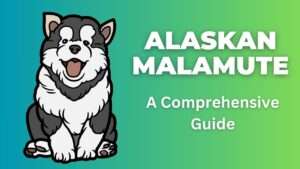
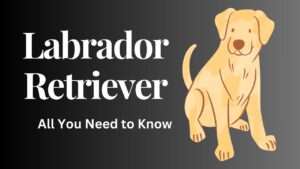

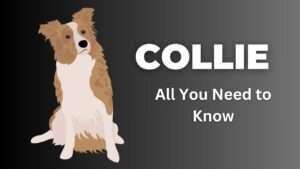


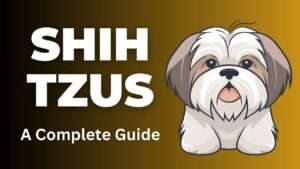

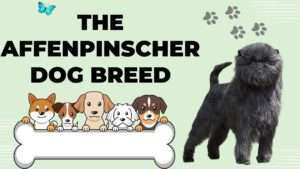

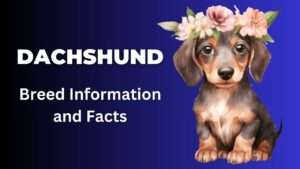




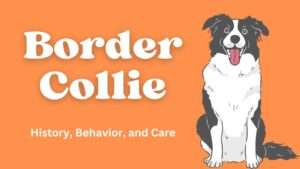







+ There are no comments
Add yours